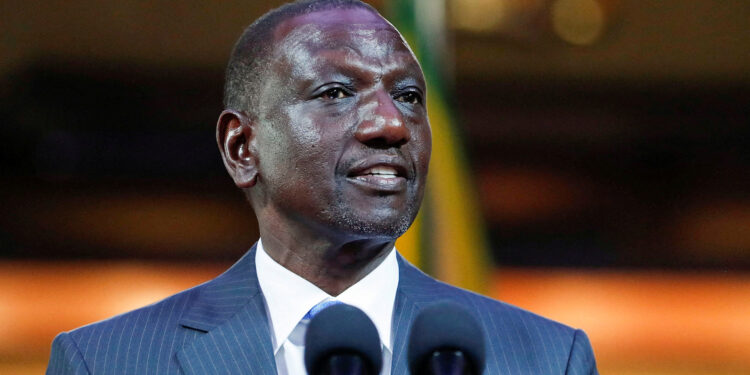Kenya’s Court of Appeal declared the government’s Finance Act 2023 unconstitutional on Wednesday, dealing a fresh blow to President William Ruto’s government who withdrew this year’s finance bill after deadly protests.
Financial bills, which are submitted to Parliament at the beginning of each fiscal year, are the government’s main means of determining revenue-raising measures, including increasing taxes and imposing new fees.
The 2023 edition was challenged in court after a round of street protests led by the political opposition, which turned violent with deaths and injuries, after Ruto’s government used them to double VAT on fuel, impose a housing tax among other measures.
“Failure to comply with this constitutional dictate renders the entire 2023 Finance Act unconstitutional,” a three-judge panel of the Court of Appeal said, referring to the unconstitutionality of the law.
The court’s ruling was on another appeal by the Supreme Court late last year, which largely left the finance bill intact, doing nothing but scrap the housing tax.
The government has pushed through a new law that allows it to continue collecting the housing tax after this ruling, and that law is also being challenged in court.
The government, which had been relying on the 2023 Finance Act to continue collecting taxes after Ruto withdrew this year’s bill, has not commented on the court’s ruling.
The government can appeal the Court of Appeal’s ruling to the Supreme Court, the country’s highest court.
Reuters was unable to reach Prime Minister Musalia Mudavadi’s office for comment, and senior finance ministry official Chris Kiptoo did not respond to requests for comment.
Ruto nominated a new finance minister after sacking all but one of his ministers in response to violent youth-led protests that began last month.
Ruto says the tax increase is necessary to enable the government to fund development programmes while paying off a heavy public debt burden that currently exceeds the level recommended by the International Monetary Fund and the World Bank.
The government has submitted a new economic plan to the International Monetary Fund, which is expected to be considered by the Fund’s Board of Directors at the end of August.



